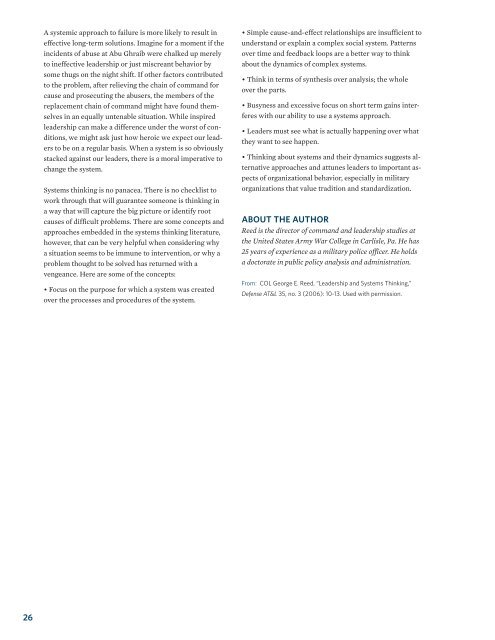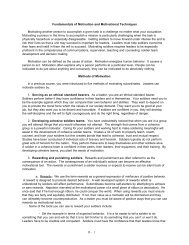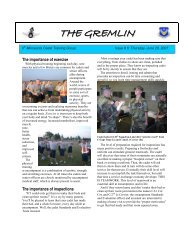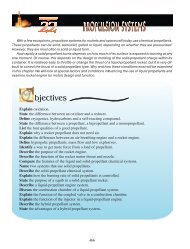LEARN TO LEAD - Civil Air Patrol
LEARN TO LEAD - Civil Air Patrol
LEARN TO LEAD - Civil Air Patrol
You also want an ePaper? Increase the reach of your titles
YUMPU automatically turns print PDFs into web optimized ePapers that Google loves.
A systemic approach to failure is more likely to result ineffective long-term solutions. Imagine for a moment if theincidents of abuse at Abu Ghraib were chalked up merelyto ineffective leadership or just miscreant behavior bysome thugs on the night shift. If other factors contributedto the problem, after relieving the chain of command forcause and prosecuting the abusers, the members of thereplacement chain of command might have found themselvesin an equally untenable situation. While inspiredleadership can make a difference under the worst of conditions,we might ask just how heroic we expect our leadersto be on a regular basis. When a system is so obviouslystacked against our leaders, there is a moral imperative tochange the system.Systems thinking is no panacea. There is no checklist towork through that will guarantee someone is thinking ina way that will capture the big picture or identify rootcauses of difficult problems. There are some concepts andapproaches embedded in the systems thinking literature,however, that can be very helpful when considering whya situation seems to be immune to intervention, or why aproblem thought to be solved has returned with avengeance. Here are some of the concepts:• Focus on the purpose for which a system was createdover the processes and procedures of the system.• Simple cause-and-effect relationships are insufficient tounderstand or explain a complex social system. Patternsover time and feedback loops are a better way to thinkabout the dynamics of complex systems.• Think in terms of synthesis over analysis; the wholeover the parts.• Busyness and excessive focus on short term gains interfereswith our ability to use a systems approach.• Leaders must see what is actually happening over whatthey want to see happen.• Thinking about systems and their dynamics suggests alternativeapproaches and attunes leaders to important aspectsof organizational behavior, especially in militaryorganizations that value tradition and standardization.ABOUT THE AUTHORReed is the director of command and leadership studies atthe United States Army War College in Carlisle, Pa. He has25 years of experience as a military police officer. He holdsa doctorate in public policy analysis and administration.From: COL George E. Reed, “Leadership and Systems Thinking,”Defense AT&L 35, no. 3 (2006): 10-13. Used with permission.26
















